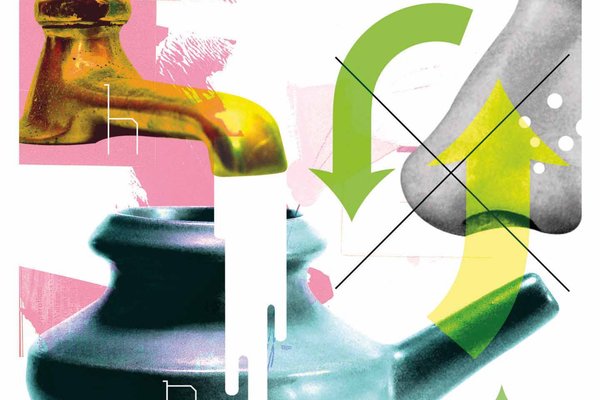(单词翻译:单击)
A new study suggests that parents who wash their dishes by hand, rather than in a dishwashing machine, may unwittingly lower the likelihood that their children will develop allergies.
一项新研究表明,父母用手洗碗——而不是用洗碗机——可能在无意中降低孩子患过敏的可能性。
The new study, published in the journal Pediatrics, looked at whether a number of behaviors that expose children to bacteria early in life might protect them from developing allergies later on. The idea, known as the hygiene hypothesis, is that children raised in particularly sanitized environments are less likely to develop an immune tolerance to trivial threats.
这项新研究发表在《儿科学》(Pediatrics)杂志上,它研究的是一些让儿童接触细菌的行为能否防止日后出现过敏。这个观点被称为卫生假说,它认为在特别干净的环境中养大的孩子更加难以对无关紧要的威胁产生免疫力。

The researchers followed roughly 1,000 young children and their parents living in the Gothenburg area of Sweden. They investigated behaviors like whether the parents fed their children foods purchased directly from farms, such as eggs, meat and unpasteurized milk. They looked into whether the children ate fermented foods, which have beneficial probiotic bacteria. And they looked into whether the parents washed their dishes by hand or used a dishwasher.
研究者调查了瑞典哥德堡地区约1000名幼儿及其父母的生活。他们调查的行为包括:父母是否用直接从农场买来的食物喂养孩子,比如鸡蛋、肉类和未经高温消毒的牛奶;这些孩子是否食用含有益生菌的发酵食物;这些父母是用手还是用洗碗机洗碗。
Then they examined whether the children had allergic conditions including asthma, eczema and hay fever. Ultimately, the researchers found that children raised in households where dishes were always washed by hand had half the rate of allergies. They also discovered that this relationship was amplified if the children also ate fermented foods or if the families bought food directly from local farms.
然后他们调查这些孩子是否患有哮喘、湿疹或花粉病等过敏症。最后,研究者发现,在一直用手洗碗的家庭长大的孩子患过敏的比率是用洗碗机洗碗的家庭的一半。他们还发现,如果这些孩子也吃发酵食物或直接从当地农场购买的食物,这种联系更为明显。
The findings demonstrated only an association, not cause and effect, so it was not clear whether these behaviors directly led to fewer allergies. But it may be the case that these behaviors expose children to innocuous bacteria, which can help strengthen their immune systems, said Bill Hesselmar, an assistant professor at the University of Gothenburg and lead author of the study.
这些发现只是表明一种联系,而非因果关系,所以仍不明确这些行为能否直接导致更少出现过敏。但是这项研究的主要作者、哥德堡大学的助理教授比尔·海瑟玛(Bill Hesselmar)说,情况可能是,这些行为能让孩子接触无害细菌,从而提高免疫力。
Dr. Hesselmar said that while the sanitizing effect of dishwashing machines can be a good thing, the “less efficient” method of washing dishes by hand might leave behind some bacteria that could have benefits. But he said more research was needed to see if the relationship they found was real and, if so, what was causing it.
海瑟玛博士说,洗碗机的消毒作用可能是有益的,但是用手洗碗这种“不那么高效”的方式可能会留下一些有益细菌。但是他说,需要进行更多研究来确定他们发现的这种关系是否属实,如果属实的话,原因是什么。
“It’s an interesting finding and very surprising,” he said. “But we have to see if we can confirm it.”
“这是个有趣的发现,非常令人意外,”他说,“但是我们必须看看能否证实它。”


